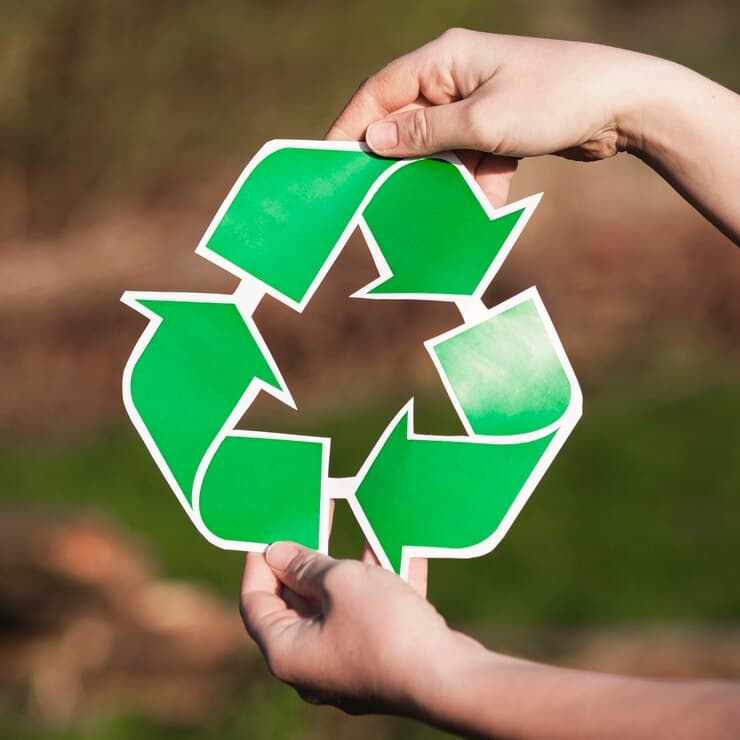The rapid pace of industrialisation has led to significant environmental challenges, particularly in waste management. As industries expand, so does their waste output, necessitating advanced solutions to manage this waste sustainably. Technological innovations in waste management are at the forefront of reducing the environmental footprint of industrial activities. These innovations are not only transforming the way waste is processed and disposed of but also contributing to a circular economy where waste is seen as a resource rather than a burden.
The Role of Smart Technology in Waste Management
One of the most significant technological advancements in waste management is the integration of smart technologies. These innovations are redefining how industries approach waste collection, segregation, and disposal.
Smart Bins and Sensors
Smart bins equipped with sensors are increasingly being used in industrial settings to monitor waste levels in real-time. These bins can detect when they are full and automatically signal waste collection services, ensuring that waste is collected promptly and efficiently. This not only reduces the need for constant monitoring but also minimises the risk of overflow, which can lead to environmental contamination.
Moreover, smart bins are often connected to data analytics platforms that help industries track waste generation patterns. This data is invaluable for identifying areas where waste can be reduced or where recycling efforts can be intensified. For instance, if a particular production line is generating excessive waste, the data can highlight this issue, prompting a review of the processes involved.
AI-Powered Waste Sorting
Artificial intelligence (AI) is revolutionising the sorting of industrial waste. Traditional waste sorting methods are labour-intensive and prone to errors. AI-powered robots and machines, however, can sort waste with remarkable accuracy and speed. These systems use machine learning algorithms to identify different types of waste materials—such as plastics, metals, and organic matter—and sort them accordingly.
By improving the efficiency and accuracy of waste sorting, AI not only reduces the volume of waste that ends up in landfills but also enhances the quality of recycled materials. High-quality recycling can significantly reduce the demand for raw materials, further diminishing the environmental impact of industrial activities.
Advanced Recycling Techniques

Recycling has long been a cornerstone of waste management, but recent technological advancements have taken recycling to new heights. These innovations are making it possible to recycle materials that were previously considered non-recyclable, thereby reducing the overall waste output of industries.
Chemical Recycling
One of the most promising advancements in this area is chemical recycling. Unlike traditional mechanical recycling, which involves physically breaking down materials, chemical recycling uses chemical processes to convert waste materials back into their original raw materials. This technique is particularly effective for recycling plastics, which are notoriously difficult to recycle using mechanical methods.
Chemical recycling not only allows for the recycling of complex plastic products but also produces higher-quality recycled materials. These materials can then be used to manufacture new products, closing the loop in the production cycle and reducing the need for virgin resources.
Waste-to-Energy Technologies
Another critical innovation is waste-to-energy (WtE) technology, which converts industrial waste into usable energy. Through processes like incineration, pyrolysis, and gasification, waste materials are transformed into electricity, heat, or fuel. This approach not only reduces the volume of waste that needs to be landfilled but also provides a sustainable energy source.
Waste-to-energy technologies are particularly beneficial for managing non-recyclable waste. Instead of being discarded, this waste is used to generate energy, contributing to the overall efficiency and sustainability of industrial operations. Moreover, modern WtE plants are equipped with advanced emission control systems, ensuring that the environmental impact is minimal.
The Future of Industrial Waste Management
The future of industrial waste management lies in the continued development and integration of these technological innovations. As industries strive to become more sustainable, the adoption of smart waste management solutions will be crucial. However, the journey towards zero waste and minimal environmental footprints requires a collective effort from industries, governments, and consumers alike.
Embracing Circular Economy Principles
A significant trend that is expected to shape the future of waste management is the shift towards a circular economy. In a circular economy, waste is seen not as a by-product but as a resource that can be reused, recycled, or repurposed. This approach encourages industries to design products with their entire lifecycle in mind, from production to disposal and beyond.
Technological innovations will play a key role in enabling this transition. Advanced recycling techniques, AI-driven waste management systems, and waste-to-energy technologies will be instrumental in creating a circular economy where waste is minimised, and resources are utilised to their fullest potential.
Collaboration and Innovation
Collaboration between industries, technology providers, and regulatory bodies will be essential in driving innovation in waste management. By working together, these stakeholders can develop and implement solutions that are not only technologically advanced but also economically viable and environmentally sustainable.
In conclusion, technological innovations in waste management are paving the way for more sustainable industrial practices. From smart bins and AI-powered sorting to chemical recycling and waste-to-energy technologies, these advancements are helping industries reduce their environmental footprints while contributing to a more circular and sustainable economy. As these technologies continue to evolve, they hold the promise of transforming waste management from a challenge into an opportunity for innovation and growth.




